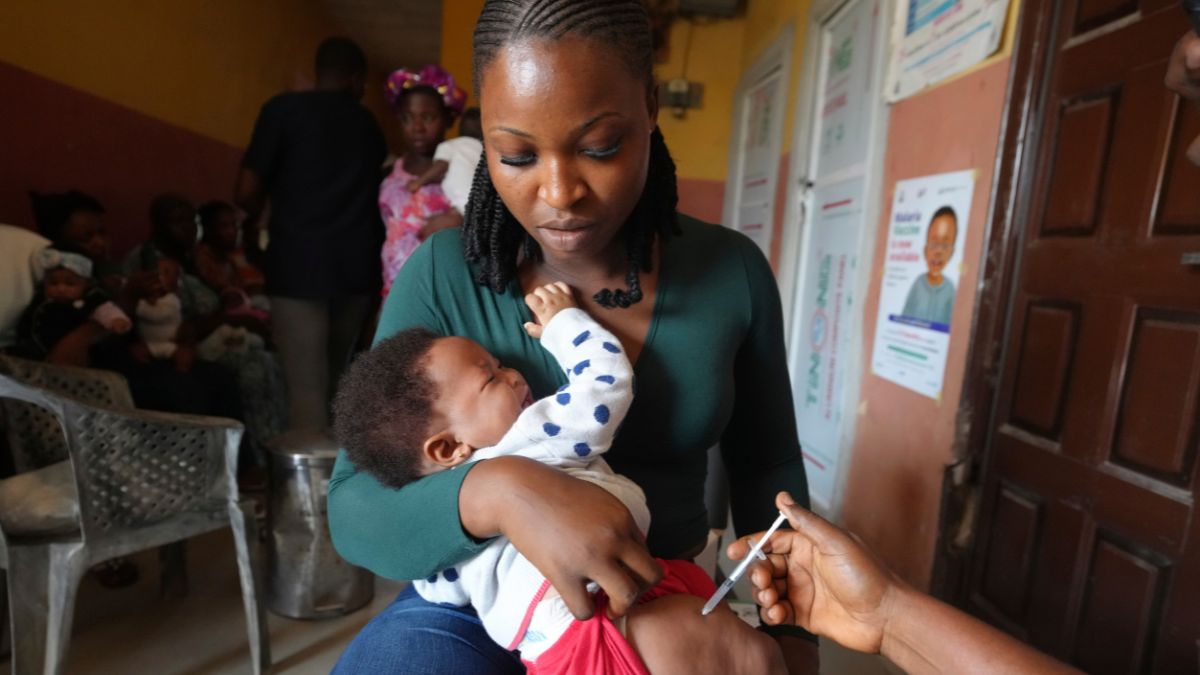Nigeria has become the latest African country to start administering malaria vaccines as the vector-borne disease sweeps the nation.
The most populated country in Africa, Nigeria has become the 17th country to begin the anti-malaria campaign in the continent, according to the World Health Organisation (WHO).
Africa accounts for the most number of cases of malaria in the world. The disease is rampant especially in Nigeria owing to poor health infrastructure and population.
The malaria vaccine aims to prevent severe illnesses and deaths from the mosquito-borne disease.
How bad is it in Nigeria?
According to a WHO report released Wednesday, there were an estimated 263 million cases of malaria and 597,000 deaths worldwide last year, mostly in children under 5. That is 11 million more malaria cases compared to 2022 with nearly the same number of deaths.
Experts say Nigeria’s population of more than 210 million people, as well as its climate, contribute to its high malaria burden, but so do other factors like poor sanitation and limited tools like treated bed nets.
“No one should die of malaria, yet the disease continues to disproportionately harm people living in the African region, especially young children and pregnant women,” said WHO Director-General Tedros Adhanom Ghebreyesus, calling for more support.
The vaccine, developed by Oxford University, is found to be 75 per cent effective at preventing the disease from becoming severe and in some cases death. A booster shot secures the protection even further after a year.
Which other countries use the vaccine?
Apart from Nigeria, 16 other African nations started offering malaria vaccines. These include:
Cameroon
Burkina Faso
Sierra Leone
Benin
Liberia
Côte d’Ivoire
South Sudan
Mozambique
Central African Republic
Niger
Chad
DR Congo
Sudan
Ghana
Kenya
Malawi
Progress has also been made on several fronts, the report said, including in the African region where countries have achieved a 16% reduction in malaria deaths since 2015. And in 83 countries where malaria is present, 25 of them now report fewer than 10 cases a year, the report said.
With inputs from AP


)

)
)
)
)
)
)
)
)



